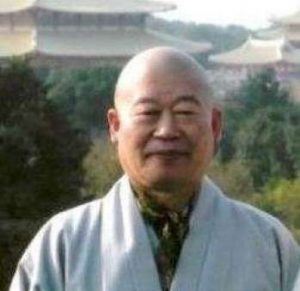
Beginner’s Mind is a special project from Buddhistdoor Global collecting insightful essays written by US college students who have attended experiential-learning-based courses related to Buddhism. Some of the authors identify as Buddhists, for others it is their first encounter with the Buddhadharma. All are sharing reflections and impressions on what they’ve learned, how it has impacted their lives, and how they might continue to engage with the teaching.
Brandon Hashemi wrote this essay for his Buddhist Literature course at Williams College during the spring 2021 semester. He will graduate in 2023 with a major in History and a concentration in Environmental Studies. He calls western Massachusetts home for the time being and is reacquainting himself with the New England area.
It was only four months ago that I had to respond to my professor’s email about why I wanted to take this class on Buddhist literature. January seems so long ago now. Coming out of a class that took a Western-centric approach to Buddhism, I was looking for something different, something I considered to be “true” Buddhism. Before coming to Williams College, I had the privilege of traveling to Sri Lanka on a humanitarian mission to provide medical care at some villages in the north of the country. I learned about their history, their civil war while I was there. It challenged everything I had presupposed about a Buddhist-majority country. I did not think that such brutal warfare was ideologically compatible with my preconceptions about their religion. In this class, I hoped to learn about the foundations of Buddhism, the social and political implications of the religion, and the history of the countries that are majority Buddhist. By the end, I began to fill in the blanks to the things I wanted to learn, and, along the way, I also learned a lot about myself.
Broadly speaking, I was able to find answers to a lot of the questions I set out in my intake form for this class. From the foundations of the Kalama Sutta to the ways that views on gender roles took shape in readings of Balkwill and Meeks, we began to scratch the surface on the history and social implications of Buddhist literature and thought. We debated the merits of classifying Buddhism as a religion, a philosophy, or something else, and we challenged preconceptions about the peaceful nature of Buddhists when there is much evidence to the contrary. Among the most interesting things that I learned were the nuances and theory of meditation practice. I was not aware of the mysticism, the levels that can be attained, nor the language that surrounds the practice. Additionally, learning more about how variations in translations of Pali and Sanskrit texts have led to differences in understanding the teachings of the Buddha over time have added another level of depth to the intellectual history of the religion. However, I believe that the most important things I took away from this class were not in Zoom meetings or lesson plans.
This period was particularly challenging for me because a close friend, Rajeev, passed away early in the semester. I recall thinking, some time after his passing, that maybe there was something to be applied from all these lessons to help me cope with his absence. One of the readings on loving-kindness, from our section on meditation and mindfulness, stuck with me: “After reviewing the ‘unlikable’ aspects of himself, he then goes on to focus loving-kindness on others.” (Harvey 327) In the process of healing, of rationalizing this new reality, it was integral that I show love toward myself before I could show love toward those around me. I learned to accept what happens, to let go of things that I cannot control, and to adapt to change because change is inevitable. When I began to accept these principles, I found myself feeling less anxious about uncertainty and more comfortable with the parts of me that I had previously been hypercritical of. These coupled well with the other major lesson I took away from this class.
One of the other lessons I have been incorporating into my life was found in an unlikely place—the rubric for the experiential exercise assignments. Under the grading criteria for the experiential exercise assignments is a blurb on typos. It reads: “Even a single spelling or grammar mistake results in minus point, as it shows that you were not mindful during writing and editing.” I thought about how this can be extrapolated to our lives. Just as we cannot alter or edit work that has been submitted to our professor, neither can we alter words that we have already spoken. Understanding this concept has led to me be more intentional in the words that I choose to speak and the manner in which they are spoken. Often, people are quick to respond but rarely do they truly listen. This is something I have noticed in other classes. When a student raises a point, another student has already crafted a response without inquiring further about how they came to that conclusion or why they believe what they do. I tried to make it a point this semester to be more understanding of those around me so that when I spoke, I did so with an intentionality that gave credence to beliefs. I found that my conversations with people were deeper and more meaningful. The more I practiced this skill, the more I found myself asking questions that helped people uncover these connections and understandings themselves. For the first time, people would often respond with: “Ooh, that’s a good question.” I hope to continue to incorporate this line of thinking far beyond this semester as it has helped to strengthen relationships I have with people in my life.
To conclude, I think back to this class and about how it has impacted my life. I can only sum it up as “patience.” Patience to think before I speak. Patience to listen before I respond. Patience to love myself as I love those around me, despite any imperfections I perceive. And, finally, patience to understand those around me because understanding each other helps us to love one another.
References
Harvey, Peter. 2013. An Introduction to Buddhism: Teachings, History, and Practice, second edition. Cambridge: Cambridge University Press.
Related features from Buddhistdoor Global
Lump on a Log
A Reflection on Personal Goals Past, Present, and Future
A Renewed Sense of Life – Revelations through Buddhist Material Culture














“Even a single spelling or grammar mistake results in minus point, as it shows that you were not mindful during writing and editing.”
A “spelling or grammar mistake” only happens because it was more natural to the writer. If writing something differently is more natural, then that’s what important. Everything is impermanent, and that includes modern-day ideas of what grammar and spelling should look like. It’s a form of mindless dogma and has no place in Buddhist philsophy.
https://www.dharmawheel.net/viewtopic.php?t=36111